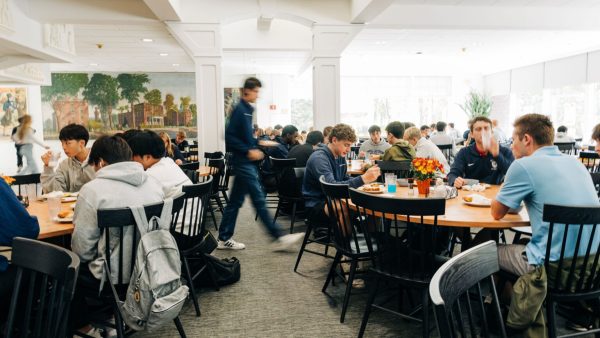How Important is the SAT in the College Process?

Credit: Twitter
Junior year is deemed as the most important year of high school, but now that preparing for college applications has been upended, juniors must find alternate ways to take on the standardized tests that make up a big part of the college process.
The pandemic has cancelled important standardized tests required for colleges, such as the SAT and ACT for the spring and summer.
The College Board, the organization that administers the SAT, stated that they are committed to offering testing opportunities as soon as it is safe. The organization is aiming for the next test to be administered in-person in August and is preparing to roll out an online testing program in the instance that schools do not have a traditional opening in the fall.
According to the College Board, “In response to the coronavirus (COVID-19) pandemic, College Board canceled the May 2, 2020, SAT and SAT Subject Test administration”
The College Board also shared their plans for future SAT administrations to ensure every student who wishes to take the test can do so.
“If it’s safe from a public health standpoint, we’ll provide weekend SAT administrations every month through the end of the calendar year, beginning in August.
This includes a new administration on September 26 and the previously scheduled tests on August 29, October 3, November 7, and December 5.”
A growing number of colleges across the country are suspending test-requirements for the 2020-2021 admissions cycle.
Cornell University in Ithaca, New York is the first school in the Ivy League to suspend testing requirements.
“Students seeking to enroll at Cornell University beginning in August 2021 can submit their applications without including the results from ACT or SAT exams,” the university said.
Nonetheless, Cornell claims that standardized test scores could be a “meaning differentiator,” which elicits fear in students that not submitting scores could be held against them.
Other top liberal arts colleges such as Williams, Vassar, Amherst, Pomona, Scripps, and Haverford have adopted a optional-testing policy for next year.
Junior Cam Huntley from West Whately, Mass, plans on taking both the SAT and ACT despite the test-optional policy.
“I have not decided officially which colleges I am applying to, so I am not sure if the ones I am considering are SAT/ACT optional, but I plan on taking the SAT and ACT regardless of this,” he said.
Cam is not set on one school, but he is looking at colleges that have excellent programs for law, pharmaceutical and biomedical research. Beyond the numbers, he is also going above and beyond to convey his interest through personal emails.
“I am also emailing my top colleges to request more information and let them know I am interested in their school,” he said.
The Willistonian spoke to Junior Abigail Belfer from New York City, who also plans on taking both the SAT and ACT with the firm belief that the scores will “boost” her application.
Abigail is using this time in quarantine to bubble multiple choice questions given the limited amount of times the test can be taken.
“Originally my plan was to take both the SAT and ACT blind once and then study targeted areas and take them again, but now I am using this time to study because I can only take them once,” Abigail explained.
Abigail is not building her college list based on whether the school accepts the test-optional policy and instead taking advantage of virtual tours to learn about each college.
“I was able to tour three colleges before everything closed, and for all of my other schools I am doing virtual information sessions/tours,” she said. “A lot of my prospective schools are in the New England area, so if school reopens in the fall, I could tour colleges on the weekends.”
She expressed that virtual tours can’t replace real college tours and feels that many of the information sessions essentially say the “same thing.”
“I’m not set on a college yet. Getting a good sense of colleges is really hard to do online, and it’s a frustrating process overall,” Abigail said.









